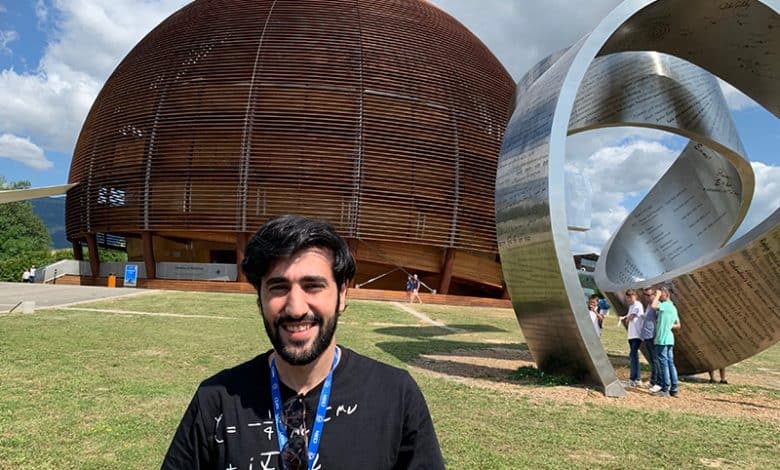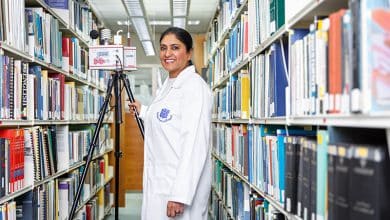Searching for Answers to Life’s Biggest Questions, Kuwaiti Physicist Travels to CERN

Not many people can say they worked with the world’s largest and most powerful particle accelerator while in grad school, but Kuwaiti physicist Eissa Alnasrallah can. With support from the Kuwait Foundation for the Advancement of Sciences (KFAS), Alnasrallah undertook a summer program at the European Organization for Nuclear Research (CERN) in 2019, where he worked on the Large Hadron Collider (LHC) - the world’s largest and most powerful particle accelerator.
“I was lucky that KFAS gave me this opportunity,” he said. “The experience helped shape my perspective on science.”
Alnasrallah earned a bachelor’s in nuclear engineering and physics in 2015 and a master’s in nuclear engineering and engineering physics in 2016 from the University of Wisconsin-Madison in the U.S. He then returned to Kuwait to work as a fellow at the Kuwait Institute for Scientific Research (KISR) and pursue a second graduate degree, a master’s in physics from Kuwait University. One of Alnasrallah’s advisors at Kuwait University encouraged him to apply for the CERN summer program.
While at CERN in Meyrin, Switzerland, Alnasrallah worked on a team analyzing data from the Compact Muon Solenoid (CMS), a general purpose particle physics detector built on the LHC. With data from the CMS, physicists can study the building blocks of matter, including the well-known Higgs boson particle. This work makes visible the tiniest details that shape our universe.
Opportunities like this one to deepen humankind’s understanding of the world are what inspired Alnasrallah to study physics in the first place. “As human beings, we really care about understanding nature,” he said. “This is the big question: Why are we here? How is the universe operating? Physics is the field that answers these questions.”
During the summer program, Alnasrallah also studied new programming languages, attended lectures, and participated in extracurricular activities like a cultural day and a hackathon. During the hackathon, his team worked for an entire weekend to design a web game based on a basic understanding of nuclear and particle physics.
The program’s diverse cohort and collaborative environment made for an invigorating experience. Alnasrallah said that meeting other researchers from around the world reminded him that to answer some of life’s biggest questions, “you really need the collaboration of everyone from different backgrounds.”
Back in Kuwait, Alnasrallah continues to work at KISR and study for his second graduate degree. His research now involves developing metal-based nanomaterials for hydrogen storage and contributing to Kuwait’s Energy Outlook, part of the institute’s goals to transform Kuwait’s oil-dependent economy by shifting to sustainable energy sources.



